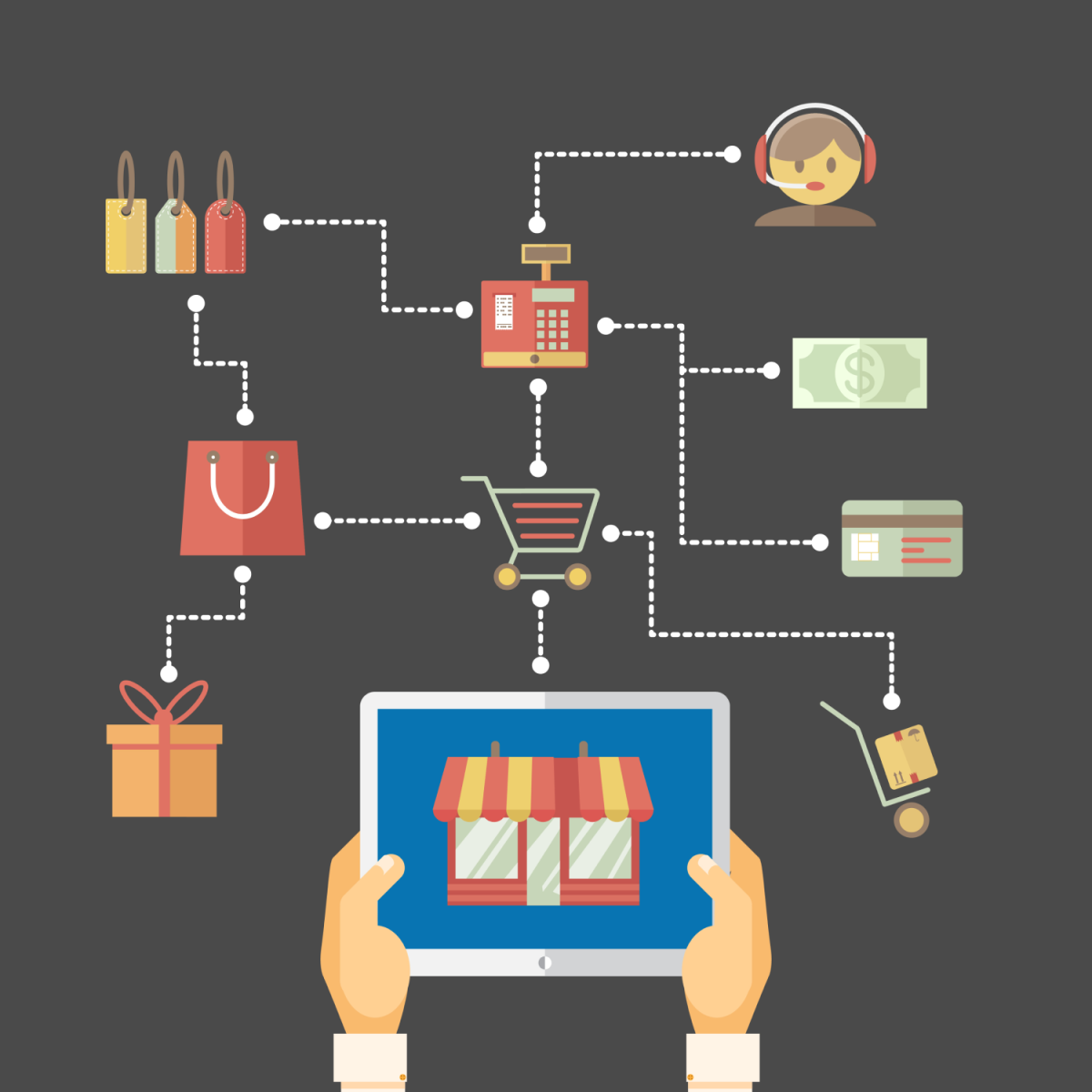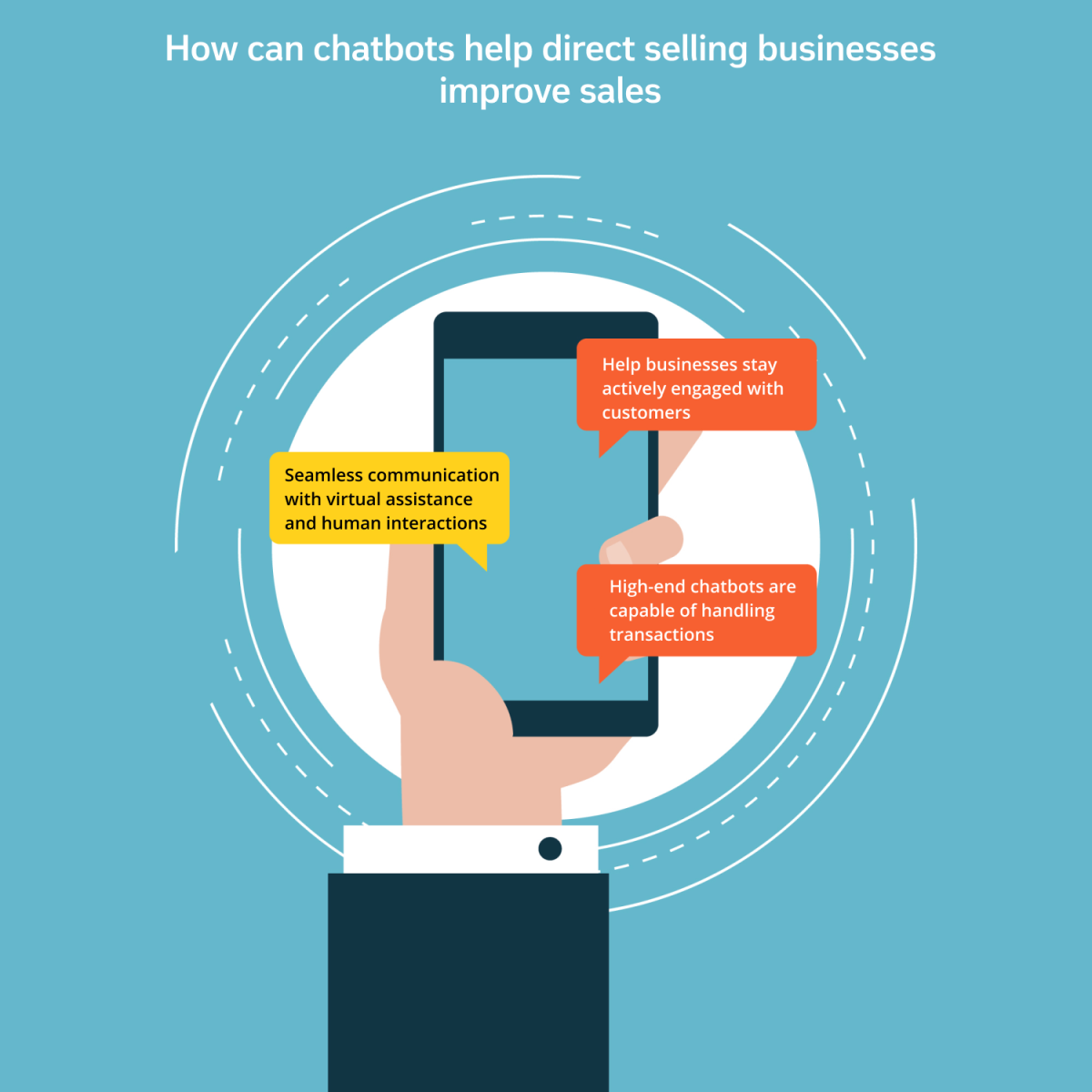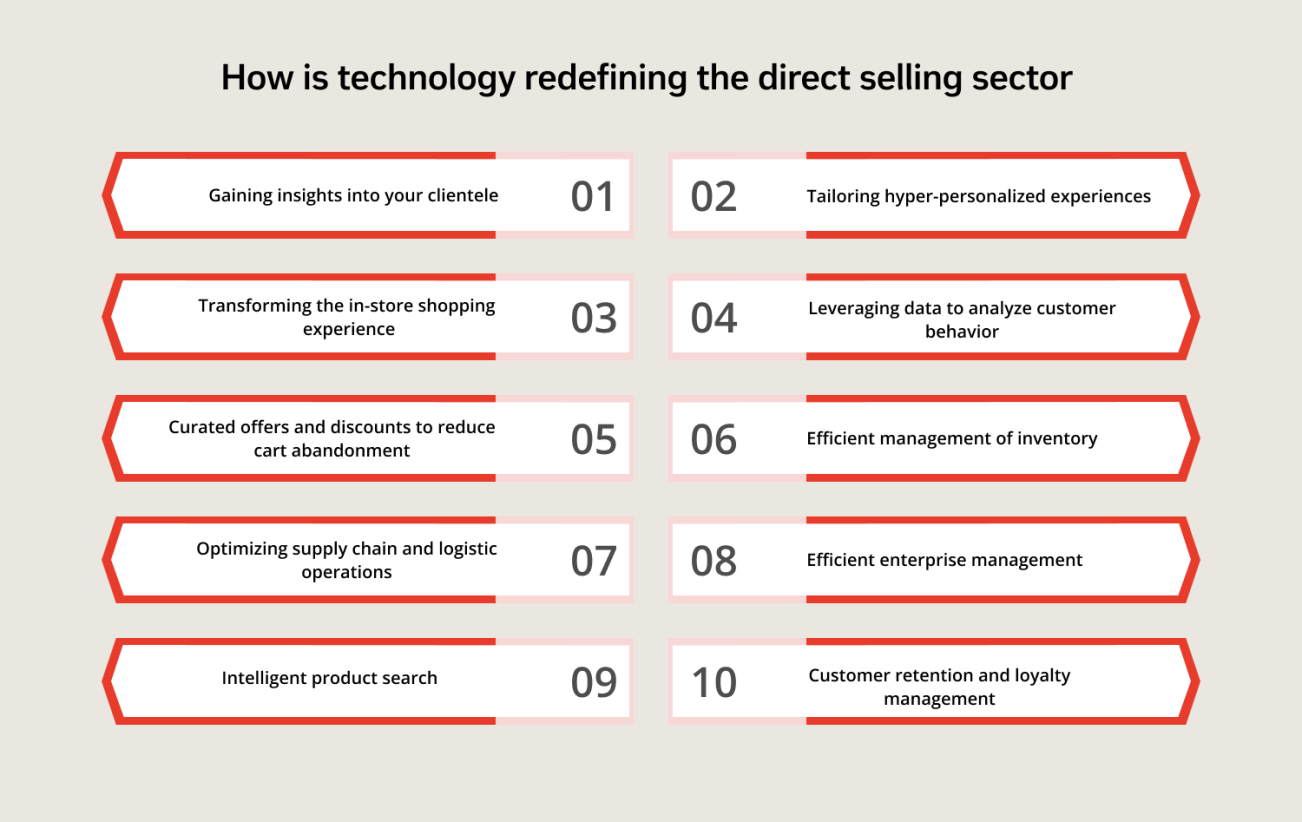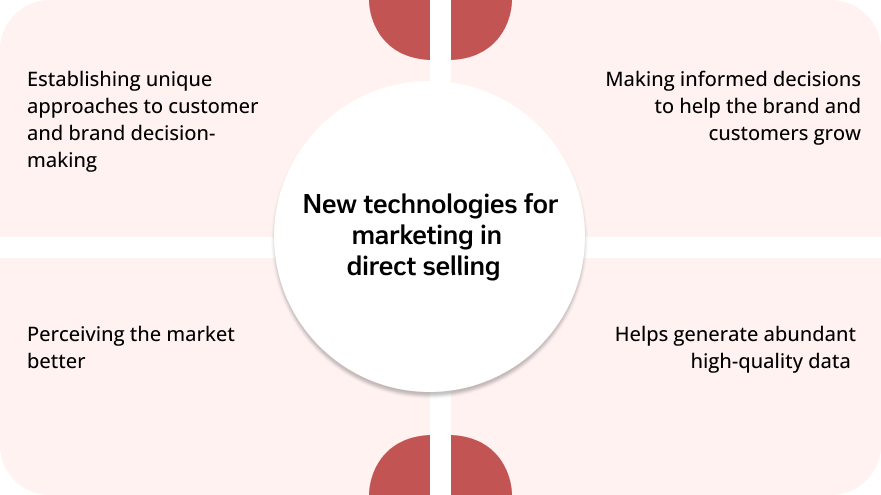Technology is a powerful ally, without a doubt. The global business landscape is undergoing a significant transformation fueled by new technologies and evolving customer behaviors. The rise of new technologies, influencer marketing, personalized experiences, curated content, artificial intelligence, etc has provided wide opportunities and posed wider challenges for businesses together at the same time.
Given this context, the direct selling landscape is also fast-moving imbibing technological advancements, especially at a time when the network marketing industry is now at an inflection point contending between growth and decline. However, what sets direct selling apart from other business models and marketing strategies is its deep-rooted conviction that the impact of human or emotional processing can never be replaced by mechanized or robotic technology in the long run.
Epixel MLM Software stay abreast with changing technologies and innovations from time to time while being rooted in organizational values, customer-centricity and ethical business practices.
New forms of customer and brand interactions
Direct selling businesses prioritize a human-centric approach even after the advent of the most advanced technologies and innovations. Most of their strategies revolve around customer interests and their preferences. Why, because customer and brand interactions encompass multifaceted communication and exchanges, engagements, and touchpoints that take place between a brand and its customers. This would range a wide spectrum of activities that are beyond business transactions or purchases, but inquiries, feedback, social media engagements, customer service experiences, loyalty programs, and the overall journey of the customer with the network marketing brand.
From customer acquisition to retention, every interaction that the multi-level marketing brand makes with its customers is crucial in shaping a positive perception of the brand in the eyes of the customers. Efficiently managing and optimizing these interactions are necessary to build strong and enduring relationships with customers in the long run.
The human-centricity of direct selling businesses involves brand and distributor relationships as well. Direct selling companies set a fair share of their annual budgets aside to enhance distributor capabilities through training and engagement because distributors share a complex yet dynamic partnership with brands and their network of distributors, resellers, and intermediaries.
Increased interactions with technology
To affirm, the brand’s relationship with distributors and customers, deploying front-end marketing techniques integrated with advanced technologies is a great idea. ‘Try before you buy’ is one such brilliant direct selling techniques where a customer gets to actually try a pair of spectacles, apparel, or even footwear virtually to find out if it would suit them with the help of AR or Augmented Reality. Try and buy has made a revolutionary impact in the real estate industry as well where a potential customer can do a property tour to find out if it would suit their requirements, budget, and even aesthetics. The pace at which this approach has helped intensify, the brand-customer relationship is so high that it even fueled the credibility and trustworthiness of the brand.
In the same way, most ecommerce businesses now have anthropomorphized chatbots that can influence customer responses in customer-initiated service interactions. Recent research by the Journal of Consumer Research states that chatbot commerce is the next big opportunity and, with brands from various industries using the same, the market is expected to grow from $2.9 billion in 2020 to $10.5 billion by 2026, at a CAGR of 23.5% until 2026.

Chatbot commerce or conversational commerce is the most novel mix of technology and marketing customers get to communicate and purchase through human-like mobile messenger platforms. Programming conversational agents with the objective of identifying customer preferences and customizing offers according to their choices can aid sales, ordering, and delivering processes of businesses. The primary motive of this marketing model is to persuade online shop visitors to become customers through efficient communication.
Sentiment analysis through Natural Language Processing
Natural Language Processing (NLP) is an advanced AI technique with which computers can understand text or spoken language in its full meaning, imbibing the speaker’s sentiments and what they intend to say. NLP can facilitate customer interaction in the form of voice-operated GPS systems, virtual assistants, speech-to-text dictation etc. NLP could streamline business operations by simplifying vital business procedures and help improve customer experience at large.
Sentiment analysis is a vanguard NLP technique that could detect if data retrieved from NLP is positive, negative, or neutral. It can even find out various tones in a conversation like happy, sad, angry, disturbed, etc, to identify intentions like interested or not interested in a conversation.
Sentiment analysis can help multi-level marketing organizations with

Sorting unstructured data

Real-time analysis

Maintain uniform standards
Identifying customer concerns, interests, disinterests and disappointment from their communication pattern could benefit direct selling businesses in more ways than one.



NLP and AI chatbots to aid direct selling operations
Chatbots not only help with customer assistance, but in the direct selling scenario it is an efficient technology for distributor support to help them enhance their performances. Advanced level chatbots could be transactional that can help distributors and customers complete their orders and queries.
While AI and chatbots are efficient ways to automate business, it is important to maintain a balance between automation and humanization for a human-centric business like direct selling. AI chatbots can empower human interactions and facilitate routine, repetitive, or simple tasks that can be done quickly and cost-efficiently by machines.
A study from intercom highlights that sales increased by an average of 67% with the use of chatbots, and that chatbot interactions initiated 26% of all sales.
Understanding how NLP and AI-enabled chatbots can help direct selling businesses grow is the first step to recognizing their importance in the business.

Support onboarding processes – Distributor onboarding will have numerous ifs and buts and whys. In this situation, integrating chatbots on the website or messaging app could help clarify many frequently asked questions. This could be crucial for the newcomers to have a continuous backing to understand the compensation plans and other critical information regarding the business and the industry as a whole.
Self-service tool – Letting customers browse through your products and make purchases without having to go to your website is a quick and easy way to get them to shop. For which, digital catalogs on chat apps and chatbots could be efficiently made use of. Incorporating message flows in the chatbots could be helpful for distributors to facilitate distributor acquisition and retention.
Efficient business management – Chatbots can deliver easy access to common organizational information like commission calculation, rank, overall sales, orders placed, people in the network etc without hindering the flow of a distributor’s activities.
To derive customer insights – With NLP and sentiment analysis, customer opinions, their innate emotions regarding the brand, its products and services, etc could be traced, which will help businesses understand the level of customer satisfaction and their preferences and choices.
For efficient customer service – Sentiment analysis helps businesses respond to customer concerns more efficiently by identifying their sentiments, and gauging market dynamics in real-time, and later providing prompt assistance.
To build a robust brand reputation – As much as brands focus on building positive image, it is important to identify negative sentiments at the early stage and take suitable steps to address them. This could help brands monitor and manage their reputation from time to time.
How are popular direct selling businesses putting AI to use?
Many successful direct selling brands have put AI, the complicated yet rapidly evolving technology to best use and envisaged their success-oriented future. Mary Kay, Amway, and Herbalife are a few successful direct selling brands that has reaped rewards in terms of profits, brand reputation and visibility with the help of VR and AI.
As per the McKinsey survey, AI was used in at least one business function by 78% of respondents, representing a growth from 72% in early 2024 and 55% in 2023.
With these advanced technologies, the direct selling industry has been able to deliver hyper-personalized, virtual interactive experiences that lets customers try-on more products and have a positive and impactful shopping experience.
Mary Kay’s Suite 13
A revolutionary movement by Mary Kay when they launched their virtual reality platform to showcase their product portfolios. The platform is a virtual pop-up showroom where customers can tour the 360-degree, three-dimensional beauty experience store, explore the brand’s signature products, and learn about its legacy.
Suite 13 delivers impeccable and immersive customer experience engaging the socio-psychological senses of customers and thus building brand affinity and customer loyalty.

Amway’s AI powered platforms
While introducing artificial intelligence into makeup and cosmetics was a discovery par excellence, blending AI into the healthcare sector was way beyond that. Amway introduced an efficient ai network marketing system with strong data capabilities across all areas of its operations.
Creating new waves in the direct selling sector, Amway piloted AI powered mobile application for distributors for real-time sharing of information, and to keep them in loop regarding what’s new in the market and what is happening at the organization’s end. It was also built aiming to deliver faster customer management, where their concerns and inquiries are quickly attended to.

Herbalife’s enhanced AI affiliation
From suncare to nutrition care to haircare, having an automated system diagnosing users’ wellness conditions is the most sophisticated technology could get. Direct sales health and wellness, one of the most sensitive sectors in the industry, has integrated many meticulous systems to keep up with changing trends. AI-powered nutrition, wellness, and haircare experts are unique innovations that help customers receive top-notch shopping experiences not having to wait for hours or days to get a doctor’s consultation and undergo various diagnoses.
Herbalife, one of the pioneers in the healthcare sector has developed and integrated the most modern technologies to aid customers in choosing from their wide range of nutrition and wellness products. Customers even get to try sample packs to understand how a specific product would cater to their needs.
Disruptive technologies in the direct selling sector
Disruptive technology is an innovation that transforms the way an industry works in terms of business operations and customer experiences. The innovation can supersede an existing system, products, processes, and habits with much superior features or attributes. Disruptive technologies give direct selling businesses new scope for their operations with sophisticated ecosystems and comprehensive solutions. The innovation can thus facilitate tasks, accelerate sales, streamline marketing, and enhance distributor and customer interactions.
One such innovation that disrupted the whole direct selling ecosystem was ecommerce, which transformed the way businesses took place in the direct selling industry. Blockchain, fifth-generation technology or 5G, big data, cloud services, virtual and in-person smart assistants etc are few of the major disruptions that paved new roads for success for the direct selling sector.
These disruptions enhanced the businesses by manifolds creating an industry breakthrough just like how computers disrupted typewriting. These are called disruptions because, although they are aimed at enhancing a particular process or overall operations, it first creates a jitter in the functioning before it blends with and benefits the system.
Investing in disruptive technologies has, over the years, given outstanding scope for improvement for the direct selling arena. However, it requires meticulous planning involving every department of a direct selling organization to plan and understand why it is important to integrate a disruptive technology into the system and how it could benefit the overall growth and development of the organization.
Marketing innovations and technology
Of the various new forms of brand-customer interactions that affirm customer satisfaction, computer vision, and facial recognition is the next big thing that helps marketers enhance their effectiveness of personal selling. Computer vision is a technology that can mimic human visual perception enabling computers to perceive and decipher objects as humans do.
With the recent advancements in AI and computing power, computer vision is highly integrated into our daily lives that we wake up being recognized with our face to unlock our mobile phones, our personal closets with retina sensors, and our banking websites with fingerprint readers and so on. These technologies, a mix of augmented and mixed reality have been creating new waves in the direct selling sector helping the healthcare, cosmetics, and personal care categories. Where, with these technologies, brands could identify a customer’s ailments, skin conditions, fragrance preferences, and every other choice which eases the customer’s tedious job of picking a product that best suits their skin type, their allergic conditions, and so on.

Personalized interactions
Another widely used marketing tool in the direct selling sector where technology is highly integrated is for personalized interactions. Being one of the most crucial ways of communication, personalized interactions are considered inevitable for most human-centric businesses.
Despite service assistants and telecommunication, the most advanced form of personalized interactions are avatars which lets customers create a digital version of themselves based on their photos. Avatars were considered only as a mere form of entertainment but, later they proved to have a major ability to improve communication and customer engagement and thus create a digital identity for the brand. Direct selling companies consider avatars as digital spokespersons who can build robust customer relations through interaction creating a personalized and empathetic customer experience.
Avatars were also used by direct selling organizations to collaborate better with employees in the remote working setup to help them get connected to their work network and participate actively in virtual meetings and work activities.
Optimizing marketing strategies with data
As much as technology drives business to new roads leading its way to growth and success, data is equally indispensable, especially from the direct selling point of view to enhance distributor and customer satisfaction. For any business, data is important to enhance customer relationships with the brand. Data in bigger volume, velocity, and variety, also referred to as big data is what can improve the customer experience or CX.
We very well know how the direct selling sector, over the years has leveraged the power of data for

Personalization

To have a better understanding of customer behavior

To target the right customers

To predict future trends

To build customer loyalty
These strategies have been tried and tested over the years to deliver consistent and impressive CX that brings customers back to the brand.
However, this framework has been altered over time because of increasing competition, availability of diverse choices of products, and even changing human mentality and thought processes.
Leveraging data to improve customer experience
This has made MLM organizations rethink how to converge data and technology to deliver an outstanding CX. As a result, brands started focusing on compelling customer experiences which can positively influence customer’s mindsets, and behavior, thus creating a positive impact on product market performance and the financial outcome. But how can a compelling customer experience be delivered? Well, it indeed is an ocean, but let me briefly outline the concept.Brands usually focus on developing a product, focusing on its marketing, investing in building a positive perception of the product or service in the customer’s mind, and ultimately aiming at getting it sold.
A brand will have to repeat this process over and over again every time a new product or category is launched. But, with compelling customer experience, brands focus on elevating the customer’s sense of self. How beautiful, right? Forget all the financial outcomes and sales figures, if you as a brand can elevate someone’s thought process, self-esteem, and dignity, I don’t think there is anything more humane or philanthropic a brand can do to its customers. In the direct selling context, this is applicable for distributors too, where the brand takes time and effort to understand a distributor in full sense to help them help the brand and the distributor grow together.
With every new technology being integrated into MLM businesses, data pertaining to every factor you are trying to focus on in your business can be obtained, refined, and put to best use. Also, marketers these days are cautious about ‘engineered insincerity’, which means, that just because you have a large volume of data doesn’t mean that you can set your automation strategy to level one and keep shooting up emails and text messages to an extent where the customer goes ahead and block you or report spam. Ensuring the right balance between customer empathy and technology is imperative to ensure a robust brand-customer-distributor relationship.
Decision-making influenced by technology

To put it in simple words, when you bring home a new kitchen gadget like an electric cooker or even an ordinary spatula, you are investing in it because you are expecting it to streamline a lot of your duties, or it could help you offload your burden while whipping up a meal. In the same way, when organizations are integrating a new technology into their operations, it is expected to yield results positively.
Find out from our customers how our solutions give MLM businesses an edge and exceed customer expectations
New forms of data and analytics
Intricate customer data like what customers think, how they behave, react, speak, interact, respond, engage, etc can be retrieved only with the help of the most advanced technology. When one such new technique seeps into the system, the organization is getting access to a lot of information that was previously out of their reach, or they didn’t have access to. So, when businesses obtain such data-oriented information which was unidentified until then, they get to frame a lot of new decisions pertaining to customers and distributors.Analyzing these insights could help businesses make new and informed decisions and reach at striking conclusions which could be beneficial for the businesses to grow more rapidly. Direct selling businesses could even alter, mix, and place technology to experiment with customer and distributor psychology to get a deeper understanding of how they would respond in various instances. This is helpful in retargeting business results, fine-tuning websites, reworking marketing campaigns, and assessing the impact of direct marketing tools.
Framework for strategic marketing
We have traveled quite a long with technology until today. While we might have hit a few roads to success, some destinations are yet to be traveled to create more insightful and impactful success for direct selling businesses. But beyond success, direct selling looks at technology as a powerful tool that can initiate and facilitate meaningful and productive interactions between a brand, its distributors, and customers.
Technology is generating or procreating new forms of data and analytical approaches to innovative marketing tactics and, helping businesses construct unconventional strategic marketing frameworks. These findings also help us understand that, while the industry is at an inflection point, its growth is directly proportional to the willingness of the sector to grow and explore untapped opportunities that can transform the direct selling industry itself in the near future.
- Customer and brand interactions
- Increased interactions with technology
- NLP and AI chatbots to aid direct selling operations
- How are popular direct selling businesses putting AI to use?
- Disruptive technologies in the direct selling sector
- Marketing innovations and technology
- Personalized interactions
- Optimizing marketing strategies with data
- Leveraging data to improve customer experience
- Decision-making influenced by technology
- New forms of data and analytics
- Framework for strategic marketing









Leave your comment
Fill up and remark your valuable comment.